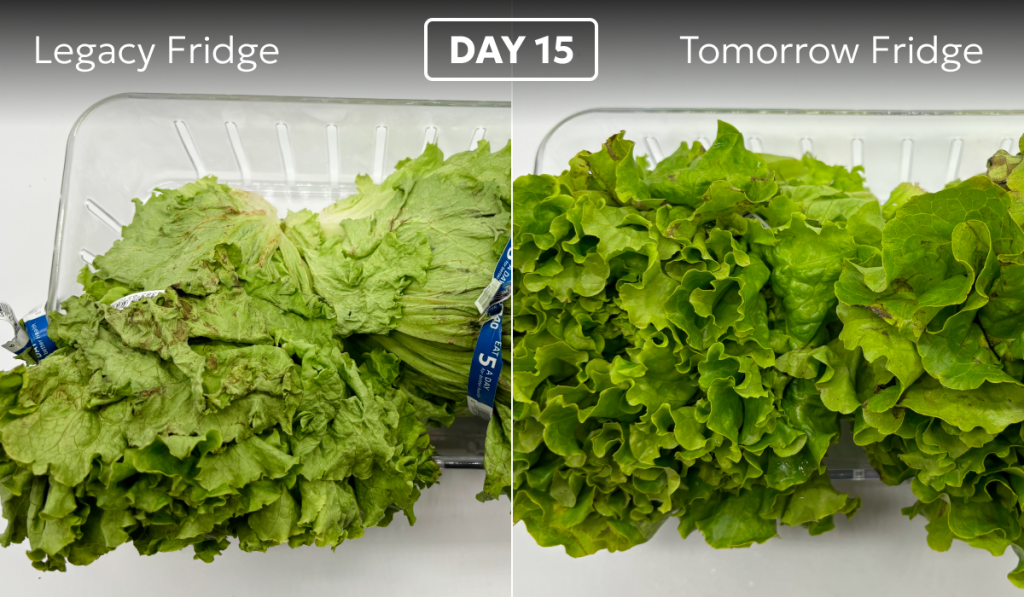Summarize this content to 2000 words in 6 paragraphs
Tomorrow says its technology can make produce, such as lettuce, last longer in the fridge. (Tomorrow Photo)
Buying fresh produce and cooking at home can be a healthy proposition, but storing food in the fridge can lead to waste when the berries go bad and cucumbers lose their crunch.
Now a new Seattle startup is coming out of stealth mode with a potential solution to spoiled food.
Tomorrow is unveiling plans for its high-tech refrigerator that aims to make produce last significantly longer.
The company is led by Outreach co-founder Andrew Kinzer, who says he has become an expert in “postharvest physiology,” or the science of slowing aging in fruits and vegetables.
Tomorrow has developed technology that reduces water loss in produce with a patent-pending cooling system that can manage the atmosphere.
Andrew Kinzer. (Tomorrow Photo)
Its computer vision system can recognize what is in each chamber of the fridge, which can also keep track of contents and notify owners when produce is running low.
Tomorrow has run experiments showing improved water retention in everything from bell peppers to strawberries. It is not yet releasing photos of its fridge or revealing more details about exactly how it all works and cost.
The company hopes to make a dent in food waste, which is estimated to be between 30-40% of the food supply in America.
Samsung has a $5,000 product that can recognize items inside, but Tomorrow does not appear to have many direct competitors in the “smart refrigerator” market.
Kinzer said competition is mostly “the status quo” and he’s confident that Tomorrow is “going deeper down the rabbit hole than anybody else” when it comes to extending the life of produce.
Tomorrow estimates the refrigeration industry at more than $5 billion.
The startup has four employees and is self-funded to date.
Kinzer helped launch Outreach more than a decade ago. The Seattle-based company, which develops software to assist salespeople, was valued at more than $4 billion valuation a few years ago. Kinzer left the company in 2020.
Other Seattle-area companies in food preservation include Strella Biotechnology, which develops hardware that detects ethylene, a chemical released by fruit as it ripens, and Transparent Path, which uses sensors to deliver real-time data on conditions of food in transit.
Related: This elegant new kitchen appliance turns food waste into chicken chow – is it worth it?


